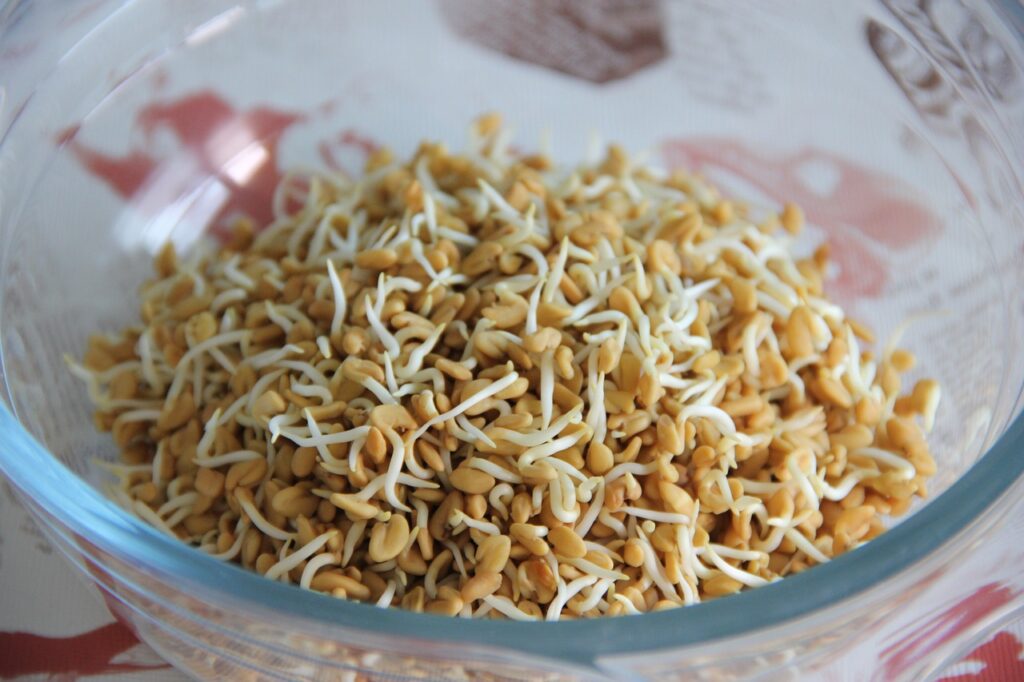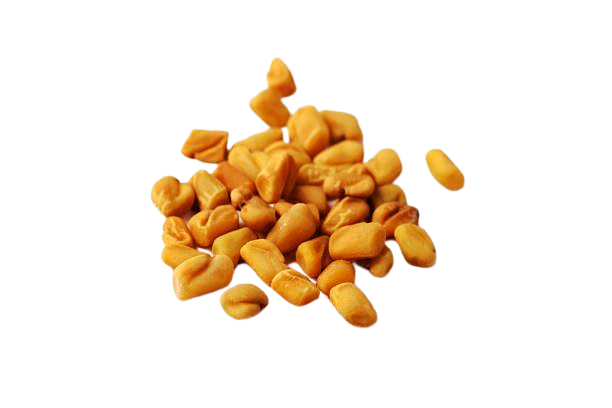fig benefits for male Introduction: In the realm of holistic health and wellness, figs have emerged as an unsung hero, particularly for male well-being. Packed with a plethora of essential nutrients and medicinal properties, figs contribute significantly to overall health. In this article, we delve deep into the various benefits that figs offer for male well-being. From nutritional perks to surprising wellness advantages, let’s explore the wonders of incorporating figs into your daily routine.
Understanding the Nutrient Richness of Figs: Fig Benefits for Male
Figs: A Nutrient Powerhouse: Explore benefits of figs soaked in water overnight
Figs stand out as a nutritional powerhouse, offering a rich blend of vitamins, minerals, and antioxidants. These small, teardrop-shaped wonders pack a punch with essential nutrients like vitamin A, vitamin K, vitamin B6, potassium, magnesium, and more. This nutrient profile makes figs an excellent addition to a balanced diet, promoting overall well-being.
Enhancing Male Vitality with Figs
Fig Benefits for Male Reproductive Health
In the realm of male wellness, the impact of figs on reproductive health is particularly noteworthy. Loaded with zinc – a key mineral known to support male fertility – figs play a crucial role in enhancing sperm count and motility. The inclusion of figs in the diet can be a natural and delicious way to boost male reproductive vitality.
Testosterone Support
As men age, maintaining optimal testosterone levels becomes crucial for vitality. Figs come to the rescue once again, containing compounds that have been linked to supporting healthy testosterone levels. Including figs in a well-rounded diet may contribute to sustaining hormonal balance and promoting male wellness.
Figs as Nature’s Heart Healer
Cardiovascular Benefits
The heart, a vital organ for overall health, finds a friend in figs. These succulent fruits are known for their ability to promote heart health by reducing blood pressure and supporting healthy cholesterol levels. The fiber, potassium, and antioxidants in figs collectively create a heart-protective synergy, making them a heart-friendly snack for men aiming to maintain cardiovascular well-being.
Harnessing the Anti-Inflammatory Properties of Figs
Fighting Inflammation Naturally
Inflammation, often considered a root cause of various health issues, can be addressed naturally with the inclusion of figs in one’s diet. The presence of polyphenols and flavonoids in figs contributes to their anti-inflammatory properties. Regular consumption may aid in mitigating inflammation, promoting joint health, and supporting overall mobility.
How to Incorporate Figs into Your Daily Diet: benefits of Anjeer (figs) for men
Fig-Infused Culinary Delights
Now that we’ve uncovered the diverse benefits of figs for male wellness, the next step is seamlessly integrating them into your daily diet. Whether sliced in salads, blended into smoothies, or enjoyed on their own, figs add a natural sweetness and a burst of nutrition to your meals.
FAQs: Fig Benefits for Male
Q: Can figs boost libido?
There is no scientific evidence to support the claim that figs specifically boost libido. While figs are a nutritious fruit that contain various vitamins, minerals, and fiber, there is no conclusive research indicating a direct link between fig consumption and an increase in sexual desire.
Libido is influenced by a variety of factors, including hormonal balance, psychological well-being, and overall health. A balanced diet that includes a variety of fruits, vegetables, and other nutrient-rich foods can contribute to overall health, which may indirectly impact libido.
If you have concerns about libido or sexual health, it’s advisable to consult with a healthcare professional who can provide personalized advice based on your individual health and circumstances. It’s important to approach such matters with a holistic perspective, considering both physical and emotional aspects of well-being.
Q: How many figs should one consume daily for optimal health benefits?
There is no specific number of figs that one should consume daily for optimal health benefits, as individual nutritional needs can vary. However, figs are a nutritious fruit and can be part of a healthy diet.
Figs are a good source of dietary fiber, vitamins, and minerals, including potassium, magnesium, vitamin K, and vitamin B6. They also contain antioxidants and phytochemicals that may have health benefits.
It’s generally recommended to include a variety of fruits in your diet to ensure a diverse range of nutrients. If you enjoy figs, incorporating them into your diet can be a healthy choice. However, it’s important to consider your overall dietary intake, as part of a balanced and varied diet.
As with any food, moderation is key. Eating too many figs in one sitting may lead to digestive discomfort due to their fiber content and natural sugars. If you have specific dietary concerns or health conditions, it’s advisable to consult with a healthcare professional or a registered dietitian for personalized advice tailored to your individual needs.
Q: Are there any side effects associated with consuming figs regularly?
While figs are generally considered a nutritious and healthy food, there are some potential side effects associated with consuming them, especially if eaten in excess. It’s important to note that individual responses to foods can vary, so what may be well-tolerated by one person might cause issues for another. Here are some considerations:
- High Fiber Content: Figs are rich in dietary fiber, which can be beneficial for digestion. However, consuming too much fiber, especially if you’re not accustomed to it, can lead to bloating, gas, or diarrhea. It’s recommended to increase fiber intake gradually and drink plenty of water to help prevent digestive discomfort.
- Natural Sugars: Figs contain natural sugars, including fructose. While the sugars in whole fruits are generally considered healthier than added sugars, individuals with certain conditions such as fructose malabsorption or irritable bowel syndrome (IBS) may experience digestive symptoms.
- Oxalates: Figs, like some other fruits and vegetables, contain oxalates. These compounds can contribute to the formation of kidney stones in susceptible individuals. If you have a history of kidney stones, it’s advisable to moderate your intake of high-oxalate foods.
- Allergies: Some people may be allergic to figs, experiencing symptoms such as itching, swelling, or hives. If you suspect an allergy, it’s important to seek medical advice.
- Interaction with Medications: If you’re taking medications, especially blood-thinning medications, it’s advisable to consult with a healthcare professional. Figs contain vitamin K, which can interfere with blood-thinning medications in large amounts.
As with any food, moderation is key. If you have specific health concerns or dietary restrictions, it’s recommended to consult with a healthcare professional or a registered dietitian for personalized advice tailored to your individual needs.
Q: Can figs prevent certain prostate conditions?
There is some evidence to suggest that certain compounds found in figs may have potential benefits for prostate health. Figs contain nutrients such as fiber, vitamins, and minerals, as well as bioactive compounds, which may contribute to overall health. However, it’s important to note that research in this area is ongoing, and definitive conclusions are yet to be established.
- Fiber Content: Figs are a good source of dietary fiber, which has been associated with various health benefits, including improved digestive health. Adequate fiber intake may play a role in maintaining overall health, which can indirectly contribute to prostate health.
- Antioxidants: Figs contain antioxidants, such as polyphenols, which have been studied for their potential protective effects against oxidative stress. Oxidative stress is implicated in various health conditions, including some related to the prostate. Antioxidants may help neutralize free radicals, which can be harmful to cells.
- Phytochemicals: Figs also contain certain phytochemicals, such as beta-sitosterol, which has been investigated for its potential role in managing prostate conditions. Beta-sitosterol is a plant sterol that is structurally similar to cholesterol and has been studied for its effects on symptoms associated with benign prostatic hyperplasia (BPH).
While these components in figs suggest potential benefits for prostate health, it’s essential to emphasize that a balanced diet, along with an overall healthy lifestyle, is crucial for maintaining well-being. Prostate health is complex, and various factors, including genetics, age, and lifestyle, contribute to its overall condition.
If you have specific concerns about prostate health or are at risk for prostate-related conditions, it’s advisable to consult with a healthcare professional. They can provide personalized advice based on your medical history, risk factors, and overall health status.
Q: What nutrients in figs contribute to male reproductive health?
Figs contain several nutrients that may contribute to male reproductive health. While the research is not exhaustive, the following nutrients found in figs are generally associated with overall health, including aspects related to male reproductive function:
- Zinc: Figs contain small amounts of zinc, which is an essential mineral for male reproductive health. Zinc plays a crucial role in sperm production and function, and low zinc levels have been associated with male infertility.
- Vitamin C: Figs contain vitamin C, an antioxidant that helps protect cells from oxidative damage. Some studies suggest that vitamin C may have a positive impact on sperm quality by reducing oxidative stress.
- Fiber: Dietary fiber is present in figs, and a healthy diet with adequate fiber intake is associated with overall well-being, including potential benefits for reproductive health.
- Antioxidants: Figs contain various antioxidants, such as polyphenols, which may have protective effects against oxidative stress. Oxidative stress can contribute to sperm damage and male infertility, so the antioxidant properties of figs could be beneficial.
- Vitamins and Minerals: Figs provide a range of vitamins and minerals, including vitamin K, vitamin B6, magnesium, and potassium. While their direct impact on male reproductive health is not as well-established as with zinc, these nutrients play essential roles in overall health.
It’s important to note that a balanced and varied diet, rather than relying on specific foods alone, is crucial for overall health, including reproductive health. If a person has specific concerns about male reproductive health or fertility, consulting with a healthcare professional or a reproductive specialist is advisable for a more comprehensive evaluation and personalized advice.
Q: Are there alternative ways to include figs in the diet besides eating them fresh?
Certainly! Figs are a versatile fruit, and there are several alternative ways to include them in your diet besides eating them fresh. Here are some ideas:
- Dried Figs: Dried figs are a popular and convenient option. They can be enjoyed on their own as a snack, added to trail mixes, or chopped and sprinkled over yogurt or cereal.
- Fig Jam or Preserves: Make or purchase fig jam or preserves. Spread it on toast, crackers, or use it as a topping for cheese. It can also be a flavorful addition to sandwiches or as a glaze for meats.
- Baked Figs: Roast or bake figs for a warm and caramelized flavor. Drizzle them with honey and add a sprinkle of cinnamon. Baked figs can be served on their own, with yogurt, or as a side dish with savory meals.
- Fig Smoothies: Blend fresh or dried figs into smoothies for a sweet and nutritious addition. Combine them with other fruits, yogurt, and a liquid of your choice for a delicious and healthy beverage.
- Fig Salad: Add fresh or dried figs to salads for a burst of sweetness. They pair well with greens like arugula or spinach, as well as with nuts, cheese, and vinaigrette dressing.
- Fig Chutney: Prepare a savory fig chutney by combining figs with ingredients like onions, vinegar, and spices. This can be a flavorful condiment for meats, cheeses, or even vegetarian dishes.
- Fig Compote: Cook fresh figs with a bit of sugar and water to make a fig compote. This can be used as a topping for pancakes, waffles, or desserts, or stirred into yogurt.
- Fig Smoothie Bowls: Create smoothie bowls by blending figs with other fruits and toppings like granola, nuts, and seeds. It’s a visually appealing and nutritious breakfast or snack.
- Fig Ice Cream or Frozen Yogurt: Incorporate chopped figs into homemade ice cream or frozen yogurt for a delightful frozen treat.
- Stuffed Figs: Stuff fresh figs with cheese, nuts, or even chocolate for a simple and elegant appetizer or dessert.
Feel free to experiment with these ideas and find creative ways to enjoy figs based on your preferences and dietary preferences.
Conclusion: fig benefits for male
As we conclude our exploration of fig benefits for male health, it’s evident that this natural marvel has much to offer. Fig benefits for male start From boosting vitality to supporting reproductive health, figs stand as a testament to nature’s ability to nurture and heal. Embrace the goodness of figs, and embark on a journey towards enhanced well-being.





